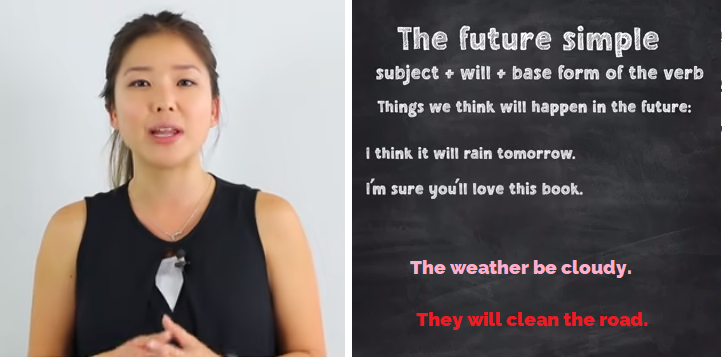We use the future tenses to talk about events or actions that happen after the present moment. We have the Simple Future Tense, Future Continuous Tense, Future Perfect Tense, and Future Perfect Continuous Tense. In today's blog, we are going to discuss the most frequently used tense, the Future Simple Tense.
USAGES
The future simple tense is used to express the speaker's opinions, assumptions, and speculations about the future with or without time expression.
Examples:
He will buy a car.
This is a mere opinion, and it gives no idea when the action of buying a car will take place, but for the planned future, the Present Progressive Tense is used. Look at the examples.
He is buying a car.
or
He is going to buy a car.
In the above two examples, it is very clear that he has already made the decision and soon he will buy a car, but in the first sentence, having "will" is just an opinion, not a decision.
The future simple tense is used for habitual actions in the future that one assumes will take place.
Examples:
Birds will build their nests
Falls will come again.
The future simple tense is used to indicate intention at the moment of decision.
Example:
Ahmad (having no English book): I don't know how to prepare for my English test.
Naveed (having the book): Don't worry, I will lend you my English book.
We know that Naveed said these words at the moment when Ahmad showed his worry.
The future simple tense is used for weather forecasting.
Examples:
It will rain tomorrow.
The weather will be cloudy tomorrow.
The future simple tense is used for making offers or promises.
Examples:
I will call you tomorrow.
The future simple tense is used for facts in the future.
Examples:
It will be his first wedding anniversary next year.
The house will be 100 years old soon.
SHALL & WILL
Both "shall" and "will" are helping or auxiliary verbs that are used with all the verbs to form the future simple tense. They are also called model verbs. The traditional rule in British English says that "shall" is used with the first person pronoun (I & we), whereas "will" is used with all the remaining pronouns, i.e., the second and third person pronouns (he, she, it, they, you). However, in American English, "shall" is avoided, and instead, "will or should" is used.
According to rules and laws, the word "shall" indicates that something must happen or someone is obliged to do something because of a rule and law.
STRUCTURE
Positive or Affirmative Sentence
They will clean the yard.
Formula:
Subject + shall/will + Base form of the verb + Object.
Negative Sentence
They will not clean the yard.
Formula:
Subject + shall/will + not + Base form of the verb + Object.
Question Sentence
Will they clean the yard?
Formula:
Shall/will + Subject + Base form of the verb + Object.
Negative Interrogative Sentence
Won't they clean the yard?
Will they not clean the yard?
Formula:
Shan't/won't + Subject + Base form of verb + Object.
Shall/will + Subject + not + Base form of verb + Object.
The negative interrogative sentences can be made in two ways. If the word "not" is contracted with the auxiliary verb, then it comes before the subject, and if it is not contracted, then the word "not" comes after the subject to make a negative interrogative sentence. In the first sentence, the word "not" has been contracted with the auxiliary verb, while in the second sentence, it has been used in expanded form, and that's why it has been put after the subject of the sentence.
RECOGNITION IN URDU
Examples
Recognition in Urdu is very important. It helps a lot in translation. If you don't know the tense of a sentence, you will be unable to translate it.



